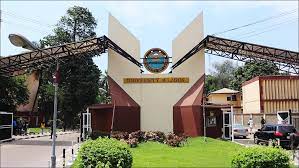
Are you interested in pursuing a degree in biochemistry at Ladoke Akintola University of Technology (LAUTECH) in Ogbomoso, Nigeria? If so, this blog post is for you!
Here we will discuss the various requirements and steps necessary to apply and study biochemistry at LAUTECH.
We will provide information on admission requirements, course prerequisites, and more, so that you can make an informed decision about your academic journey.
Read on to learn more about the requirements to study biochemistry at LAUTECH.
Why Study Biochemistry in LAUTECH?
Biochemistry is an intriguing and diverse field that offers numerous opportunities for research and career advancement. And when it comes to studying Biochemistry, LAUTECH (Ladoke Akintola University of Technology) is an excellent choice.
One of the reasons why you should consider studying Biochemistry in LAUTECH is the university's reputation. LAUTECH is known for its high-quality education and top-notch facilities, which provide students with a conducive environment for learning and research.
Another advantage of studying Biochemistry in LAUTECH is the experienced faculty members. The professors and instructors in the Biochemistry department are highly knowledgeable and experienced in their respective fields. They are dedicated to providing students with comprehensive and up-to-date knowledge in Biochemistry.
Furthermore, LAUTECH offers a well-rounded academic program for Biochemistry students. The curriculum is designed to cover a wide range of topics, including molecular biology, genetics, enzymology, and metabolism. This comprehensive approach ensures that students receive a solid foundation in Biochemistry, enabling them to pursue various career paths in the future.
In addition to the academic program, LAUTECH also provides ample research opportunities for Biochemistry students. The university has state-of-the-art laboratories and research facilities, allowing students to engage in hands-on research projects and gain practical experience.
Moreover, studying Biochemistry in LAUTECH opens up numerous career opportunities. Biochemistry graduates from LAUTECH are highly sought after in various industries, including pharmaceuticals, healthcare, research institutes, and academic institutions. They can work as research scientists, clinical biochemists, biotechnologists, and much more.
Overall, studying Biochemistry in LAUTECH offers a comprehensive and enriching educational experience, preparing students for successful careers in the field. With its reputation, experienced faculty, well-rounded academic program, and ample research opportunities, LAUTECH is the ideal place to pursue a degree in Biochemistry.
Admission Requirements for Biochemistry in LAUTECH
The admission requirements for studying Biochemistry in LAUTECH are similar to other universities in Nigeria. The candidate must possess a minimum of five O'level credits, including Mathematics, English, Biology, Chemistry, and Physics, in not more than two sittings.
Candidates must also have a good score in the UTME examination, with a minimum of 180. LAUTECH offers direct entry for candidates with an OND, HND, NCE, or A-Level qualification. Candidates with A-Level qualification must have a minimum of two passes in relevant subjects.
It's important to note that meeting the minimum requirements does not guarantee admission as LAUTECH has a competitive admission process. Therefore, candidates are advised to perform well in the UTME and post-UTME screening exercises.
Prospective candidates are advised to visit the LAUTECH website or the admission office for more information about the admission requirements.
Academic Program for Biochemistry in LAUTECH
The academic program for Biochemistry in LAUTECH is designed to provide students with a broad understanding of the chemical and biological processes that occur within living organisms. The program includes a range of courses that cover topics such as molecular biology, genetics, enzymology, metabolism, and bioinformatics.
In addition to traditional classroom lectures, the Biochemistry program at LAUTECH also includes practical laboratory sessions that give students hands-on experience with various analytical techniques and equipment used in biochemistry research. This enables students to gain a deeper understanding of the theories and concepts taught in class.
To ensure that students are able to keep up with the demands of the program, the department also offers various forms of academic support, including tutorial sessions, study groups, and access to online resources.
Overall, the Biochemistry program at LAUTECH is designed to equip students with the skills and knowledge they need to excel in the field of biochemistry and related areas. Upon completion of the program, graduates are well-prepared for careers in areas such as biotechnology, pharmaceuticals, research, and academia.
Career Opportunities for Biochemistry Graduates from LAUTECH
As a biochemistry graduate from LAUTECH, there are a plethora of career opportunities available to you. Biochemistry graduates have knowledge and skills in a broad range of areas, making them suitable candidates for different industries.
Some career opportunities for biochemistry graduates from LAUTECH include working in pharmaceutical companies, research institutions, academic institutions, healthcare industries, and environmental agencies. Biochemists can work in these organizations in various capacities such as research and development, quality control, testing, production, and management.
In pharmaceutical companies, biochemistry graduates can work in research and development, where they develop and test new drugs. They can also work in quality control to ensure that drugs produced are of high quality and meet regulatory requirements.
In research institutions, biochemistry graduates can work as researchers, where they conduct experiments and research studies to find new cures for diseases, develop new methods of drug delivery, and conduct tests on new treatments.
In academic institutions, biochemistry graduates can work as teachers and lecturers, imparting their knowledge to students. They can also conduct research and publish scientific papers.
In the healthcare industry, biochemistry graduates can work in clinical labs, where they conduct tests to diagnose diseases and monitor patients' health. They can also work in public health agencies, where they help in disease prevention and control.
In environmental agencies, biochemistry graduates can work in waste management, pollution control, and monitoring the quality of the environment.






















